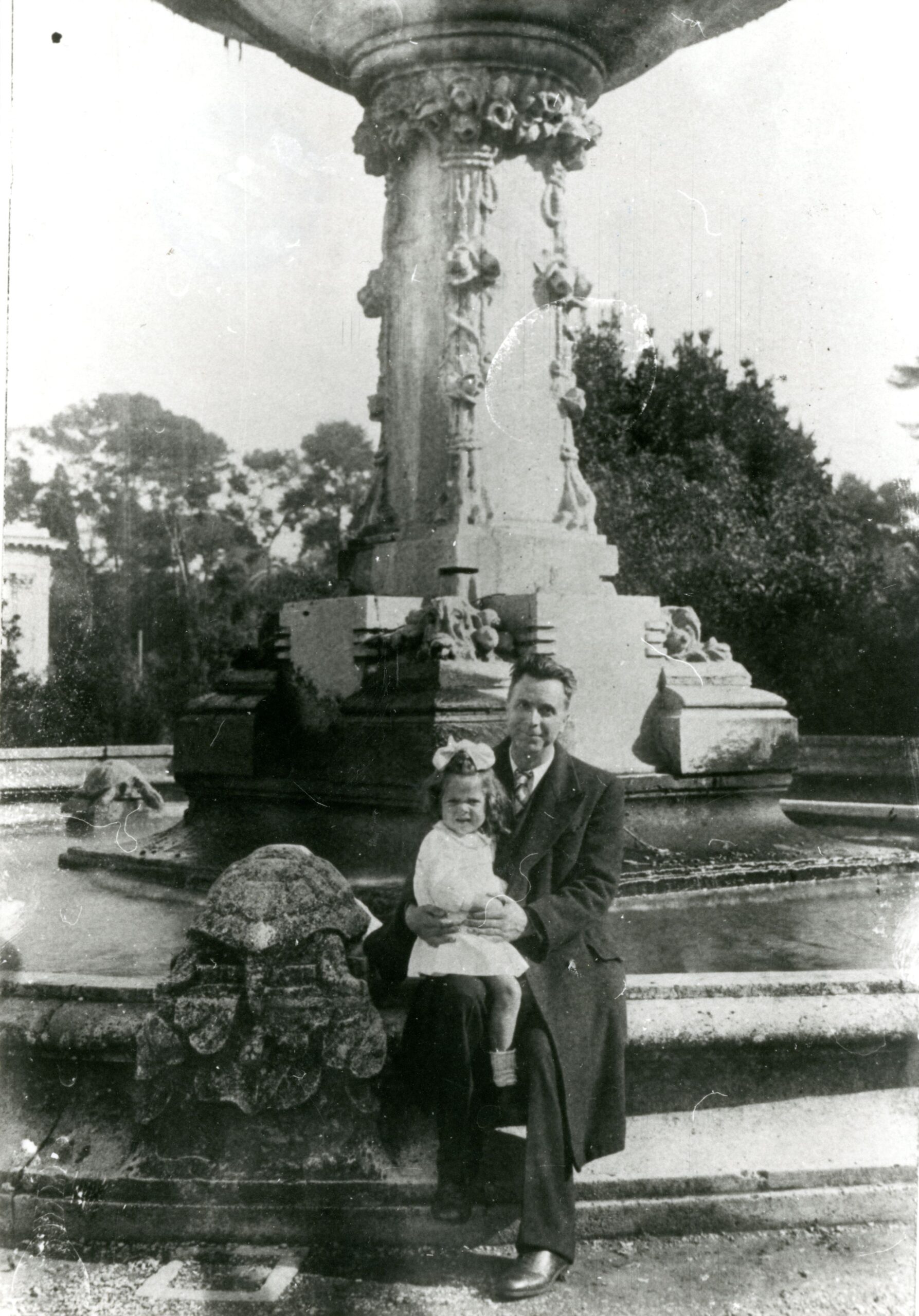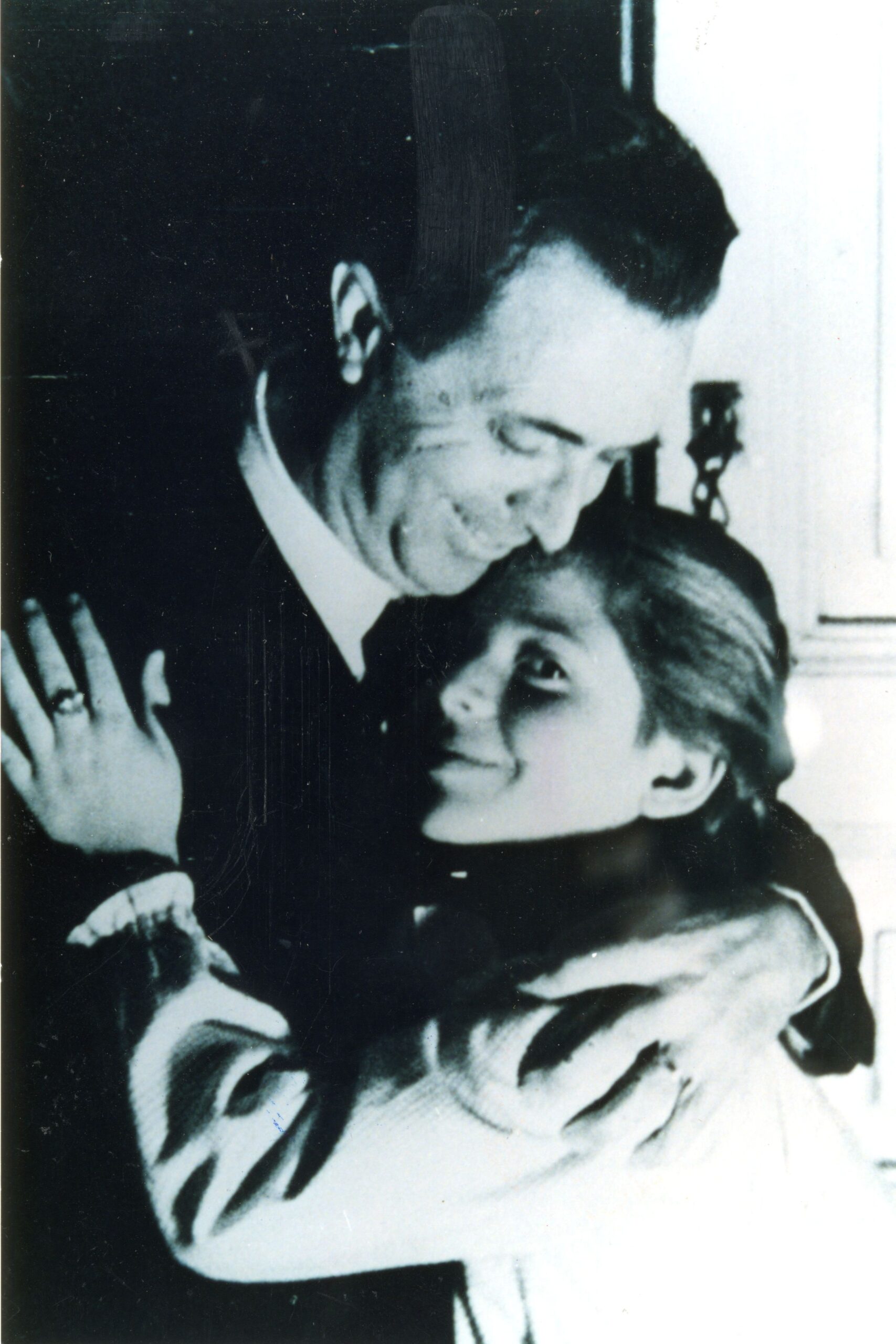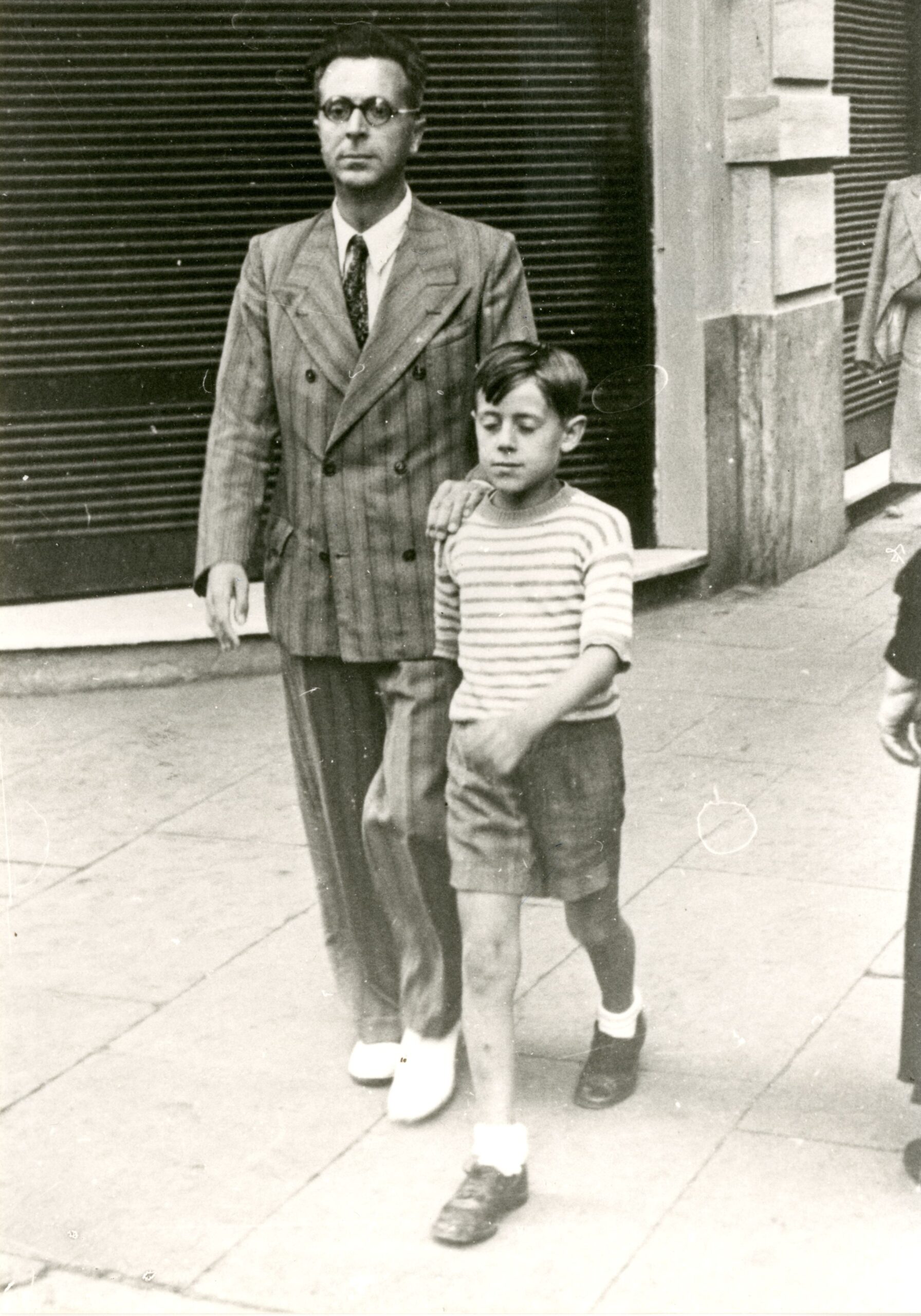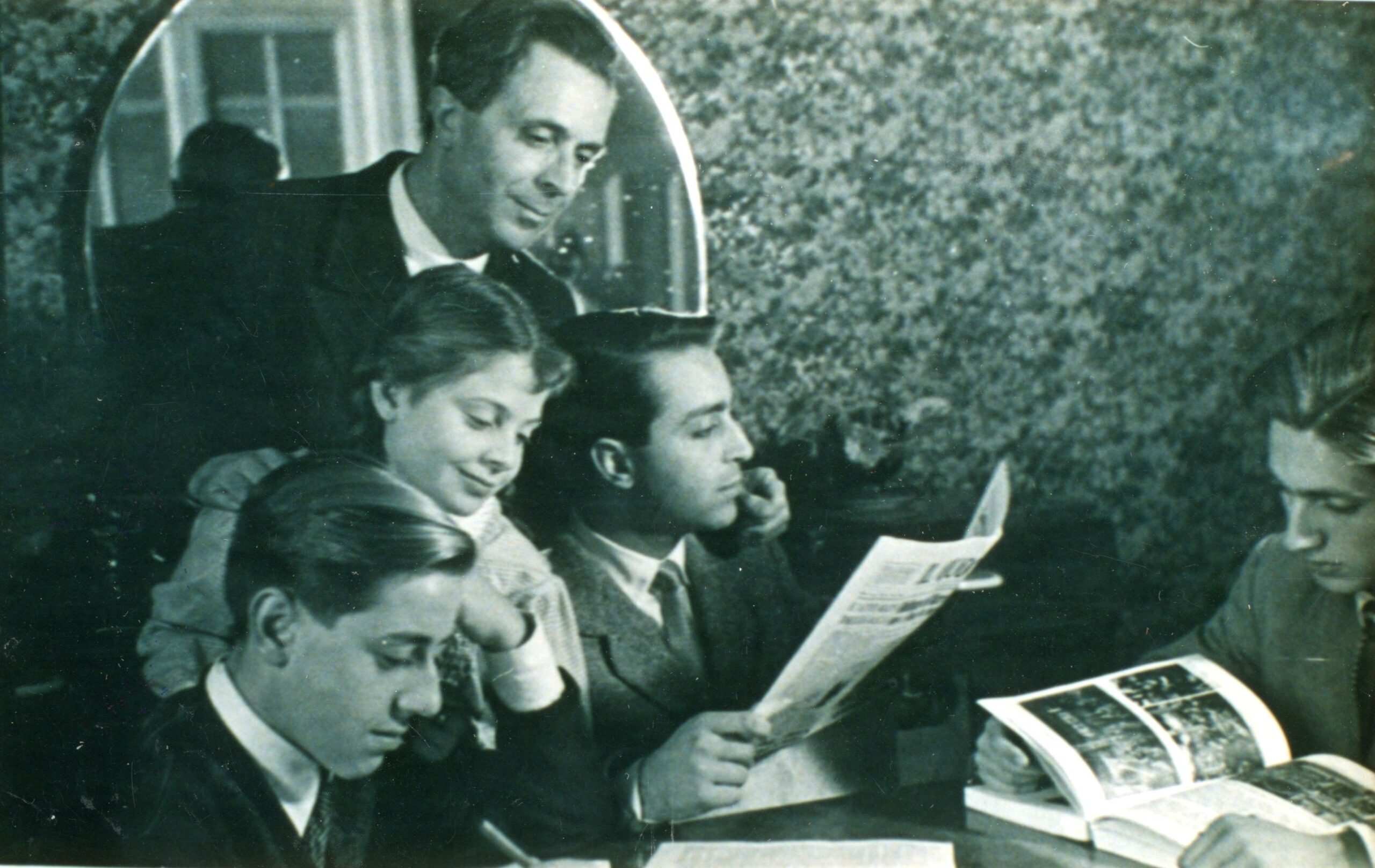From the album of Bonizza’s memoirs
18 April will be the anniversary of Igino Giordani’s “departure for Heaven.” We shall commemorate him with some excerpts of an article written by Gino Lubich and published in New City no.9-10 of May 1980.
The most far away but very clear thing I remember of dad, are the walks we had together. Dad was a good hiker, and we kids would do very long walks with him. I am referring to the period immediately following the war — Bonizza says. We were living in Via Monte Zebio and we would go along the Tiber River every day. Dad was really funny: he always walked with his hands clasped behind his back, and with his head turned up to the air and face in the wind, ran the risk of bumping into something… ».
Bonizza was the youngest of Igino Giordani’s four children, the only girl, and at that time, with quite a fragile health.
«There was a great age gap between me and my brothers, Mario, Sergio and Brando, due to which my childhood was all about me, and my relationship with dad, which was special. I was his favourite. I had always been very close to dad. When he worked at home in the afternoons, I sat on his lap and drew. My brothers would work up an incredible din, and in the other room, mom did her vocalizing exercises. He was serene and kept writing and writing, one page after the other, without saying a word. All in all he found the sounds of home, to the rhythm of mom’s solfeggio, rather pleasant.»
Giordani managed to work in the most absurd conditions, not only at home. On the tram, the minute he took a seat, he would write. When he was on the road, or in any other circumstance, even at an official lunch, if an idea came up, he would immediately jot down a note on a piece of paper, the back of a postcard, or the margin of a newspaper, absolutely withdrawn from all that was going on around him. Then, on these fragments, or more or less handy pieces of paper that could be found in all his pockets, he retraced a clear outline of an article or a chapter of a book. «Oh yes — Bonizza smiled — he was for the Vatican or for the Chamber of Deputies, a very neat librarian, but for me, a very funny, untidy person.»
There was a secret between them. Her name was Caterina, an imaginary character and Bonizza’s imaginary sister, who would come into the scene every time the perfect relationship between her and her dad was at risk of breaking. «Caterina, Caterina! —Giordani would call — Come here since Bonizza here is being troublesome!» Or else if Bonizza did not do what she was supposed to: «Never mind — he would say to her — I’ll call Caterina.» Bonizza knew qìuite well that Caterina was just a fantasy, that this was a game, and yet she was jealous of her, since she was her antagonist, and later became her social conscience.
 But rather than particular episodes, Bonizza recalls how precious her relationship was with her extraordinary dad: «I spoke to him a lot every time he was free, with utmost confidence and without any inhibition. He knew everything about me. More than a father, he was my great friend. I also told him about my first crushes and all the sentimental problems a teenager could have, and he understood and counselled me.»
But rather than particular episodes, Bonizza recalls how precious her relationship was with her extraordinary dad: «I spoke to him a lot every time he was free, with utmost confidence and without any inhibition. He knew everything about me. More than a father, he was my great friend. I also told him about my first crushes and all the sentimental problems a teenager could have, and he understood and counselled me.»
«As far as I can recall, every morning dad went to receive the Eucharist. Never did he miss a day, and at 7:00 on the dot would leave the house to go the nearest church. He always gave us the absolute freedom, in utmost respect for our choices in every field. Even in the choice of our activities he never said or suggested to do this or that. When I went to the Cabrini school and was in 4th year in secondary school specializing in classics, I didn’t like it and dreamt of doing arts. It so happened that on Three Kings dad gave me five or six thousand lire. It seemed like such a huge sum and I used it to pay for some lessons from an artist, after which I went to show dad my drawings saying: “This is what I learned to do, and I would like to go to an arts school.” What a tragedy it was: mom said no, you must do the classics like your brothers, and will not leave such a good school with all those nuns who love you so much, for a public school in Ripetta Street; and for my brothers, heaven forbid, the classics school is the classics school, then university… The only one who let me choose and supported me was dad.
He accompanied me to the arts school, we spoke with the director, and I passed the exam. There I met so many people, from the poet, Libero de Libero, to the painter, Purificato. People of the most different ideas and also all sorts of artistic oddities all met dad, became his friends and admired him a lot.
He had a unique sense of humour. Ours was a happy relationship.»
This doesn’t mean it was something idyllic. «I participated —Bonizza said — in his political and cultural vicissitudes, and at times I didn’t approve his choices, even religious ones. I found some quite irritating. But I understand it all now that I am more mature, but at that time I argued with him, also in a dynamic way, and he was very glad that I discussed those problems with him…
We have never been easy kids, and all four of us were rebellious children. We were dialectically tremendous but never in one instance did our unity with dad decrease. We have always loved one another very much.»
«In the last period — she recalled — dad’s discourses took on a great perspective. The last time he talked about everything and he called me Caterina. I thought he was joking, and was recalling my imaginary childhood antagonist. “Dad — I said — are you calling Caterina like in the past?” “How naughty you are,” he murmured, as if to say: you don’t understand. It was then that I understood, or thought I understood, that he was addressing St. Catherine. It was as if he was launching a message to me. I am reading his book on St. Catherine again. Perhaps it is there that I will find the key.»
Gino Lubich




